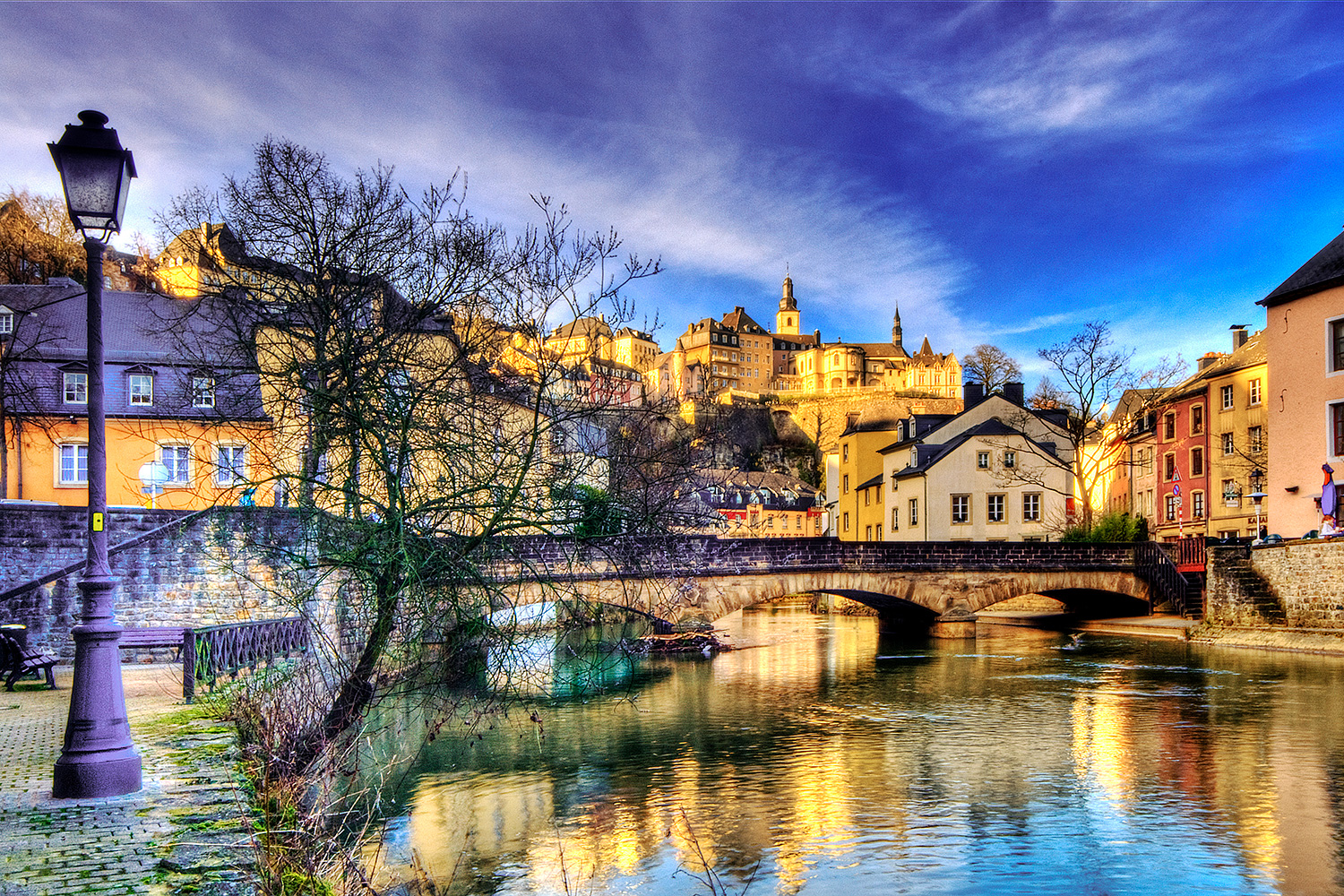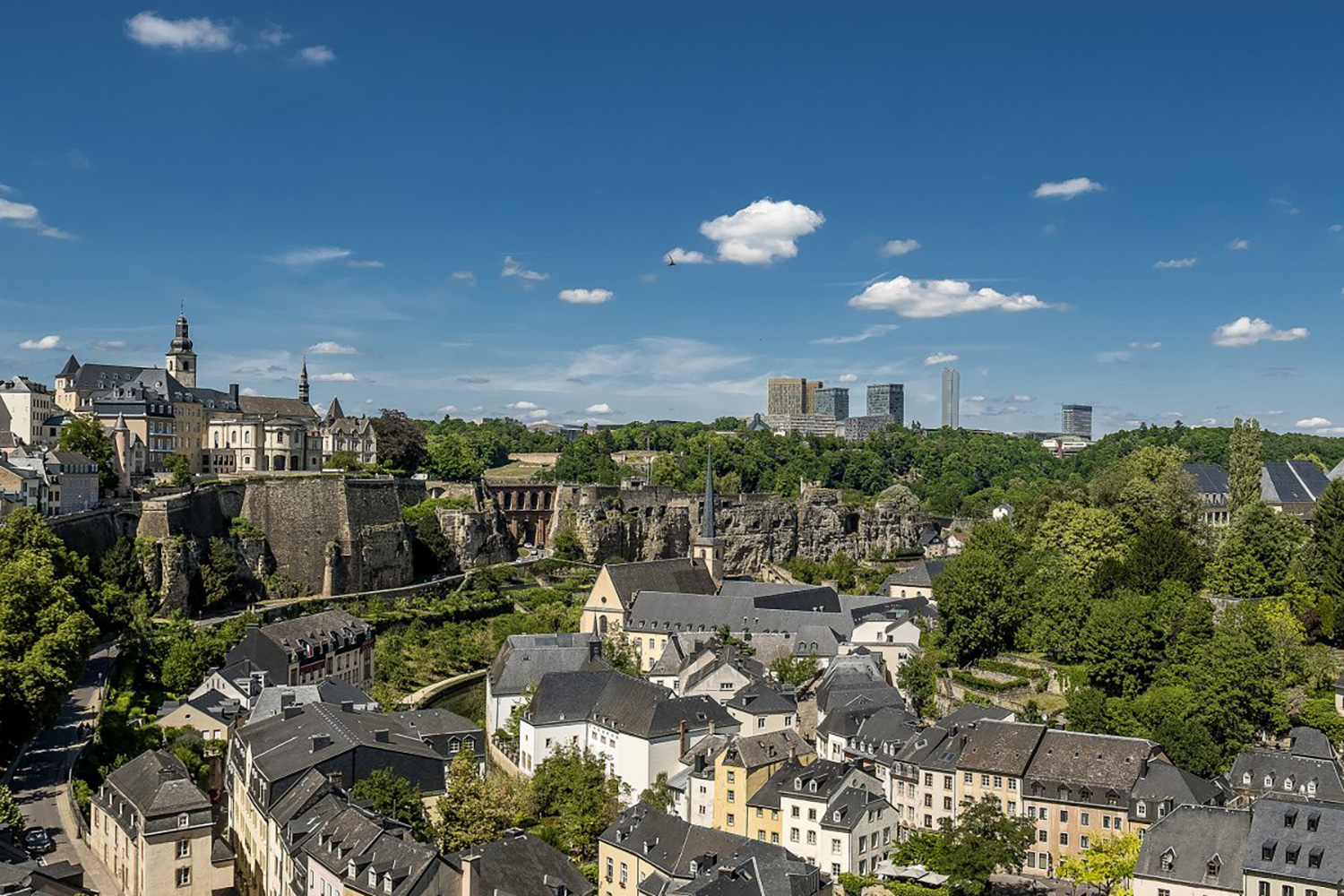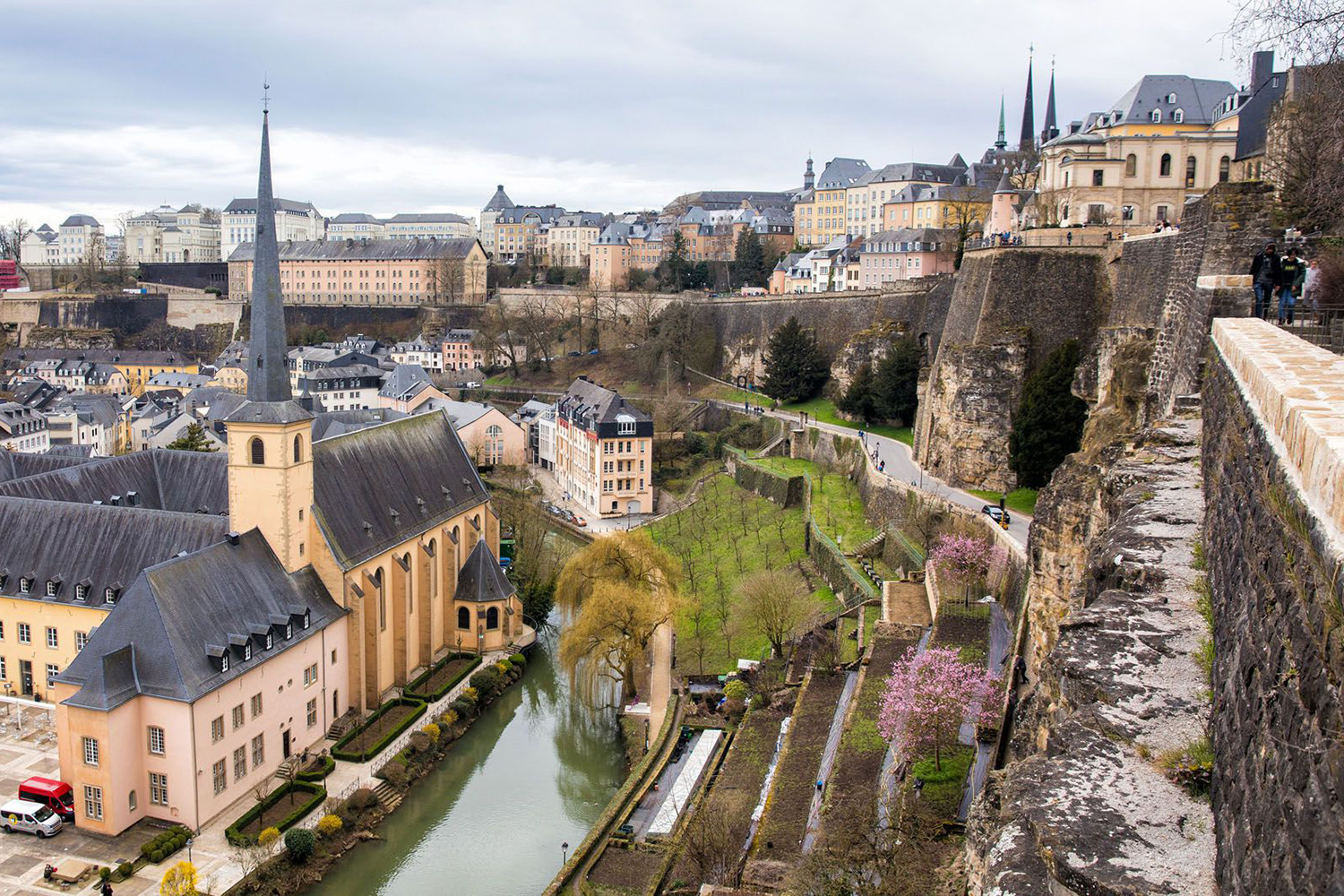Luxembourg City is the capital of Luxembourg. It offers many possibilities for shopping, cultural events, as well as incredible landscapes.



Luxembourg's origins are modest but promising. Count Siegfried, eldest son of a count of the Ardennes and without any property worthy of the name, received in 963 from the abbey of Saint-Maximin in Trier a castellum on a rocky outcrop surrounded by forests and pastures in exchange for land.
Not far from the old Roman road between Reims and Trier and surrounded by fertile land, the small castle quickly flourished and developed to become a true economic, political and religious center.
From the 12th century, Luxembourg became a real city. It becomes an economic, political and religious center of the region with ambitions which go far beyond the surrounding hills and valleys.
Indeed, the counts of Luxembourg succeeded in rapidly expanding their possessions through marriages, land purchases, feudal relations and wars. They manage to subdue their rivals, even if they sometimes suffer setbacks, as in the Battle of Worringen (1288), where Count Heinrich VI. and three of his brothers are fatally injured.
At the end of the 13th century, the county of Luxembourg was subject to a vast territory located between the Meuse and the Moselle. A peculiarity is that it stretched on both sides of the linguistic border, so that one part was German-speaking and the other French-speaking.
Several legends surround the founding of the city. The best known of these is that of the mermaid Mélusine, a mythical figure who appears in several regions of Europe.
For more information, check out this link to the official website: Link to the website


